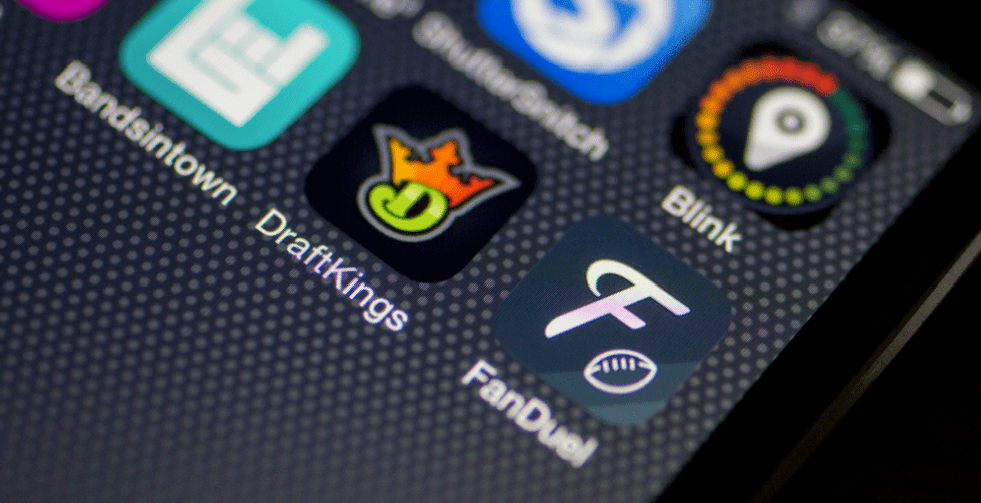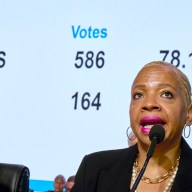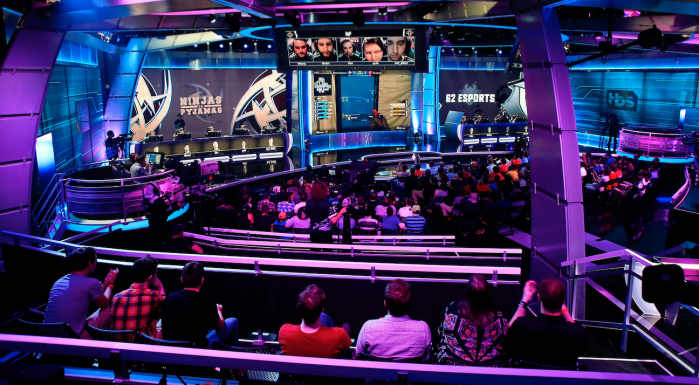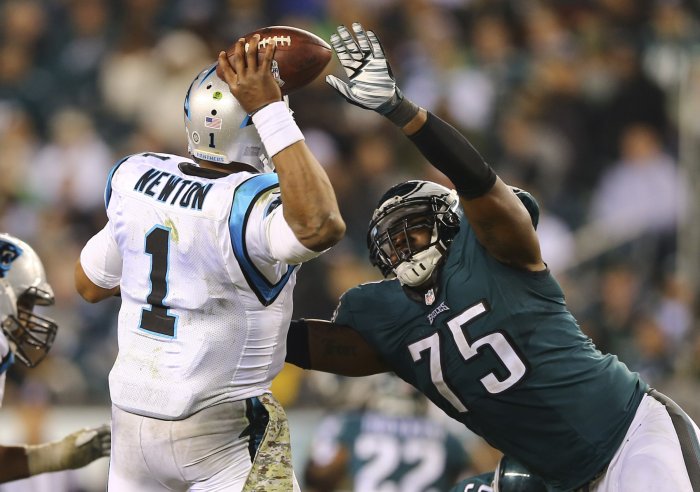The daily fantasy sports industry in the United States is prepared to take a second step forward after taking a giant step backwards a year and a half ago.
Just prior to the start of the 2015 NFL season, it seemed every other commercial on ESPN featured DraftKings telling you that you could win “a shipload of money” and former FanDuel winners bragging about their riches. That period — August through October of 2015 — was the peak period in the history of daily fantasy. But just as fast as daily fantasy’s rise in prominence came its abrupt fall. The backlash from the usual anti-gambling crowd, traditional sports gambling community, politicians and people who were just plain jealous of the two companies’ meteoric climb was insanely intense. “It was very precarious as to whether [DraftKings and FanDuel] would even survive,” explained Daniel Barbarisi, author of the new book Dueling with Kings. “They were on top of the world and then came under heavy fire. They almost fell apart, but then they actually managed to survive because they pulled off a series of legislative victories at state houses around the country, and now they’re getting their game explicitly legalized — getting exceptions for it — like other industries, like horse racing already has.” Righting wrongs
DraftKings and FanDuel agreed to merge this past November and the deal is currently being reviewed by the Federal Trade Commission. After the backlash and legal battles, the two companies have made considerable changes to the way they operate. “Players can enter multiple lineups in a single tournament [now],” Barbarisi told Metro. “It used to be that you could enter a ton of lineups — many, many, many — which gave a big advantage to the biggest players. Over time they’ve cut down on the number of lineups you can use. So they’ve really reduced multi-entry, and they’ve put multi-entry limits and caps on their games — which I think makes an enormous difference to level the playing field. “They’ve also done things like banning certain computer scripts that give certain players an edge in manipulating certain things on the websites themselves — like quicker lineup changes. That’s a big advantage if you can build that certain computer script yourself. That kind of stuff has also gone away. “There are other limits on things like who can take certain numbers of head-to-head match ups at different dollar values. They also introduced more casual games. They’ve basically just made a lot of attempts to even the playing field in favor of the small-time player as opposed to the really dominant pro who used to own the world. I think those have actually been really, really good changes.” Quit your day job?
Barbarisi was once the New York Yankees beat writer for The Wall Street Journal, but left the sports journalism world in favor of becoming a daily fantasy pro. There were plenty of days, particularly early on after his change in careers, when he doubted his decision. “I was a big loser for a long time,” Barbarisi told Metro. “That was emotionally very difficult. Financially, it was very difficult. My wife would come home and would find out that I’d lost again and it was like, ‘I just quit my job to do this?’ That was not the easiest thing.” Barbarisi eventually figured it out, but he didn’t win big playing daily fantasy baseball like he thought he would. In fact, Barbarisi said he “sucked” at baseball despite being around the game for years. “I thought I was going to be a baseball expert but I was really, really bad at it,” Barbarisi said. “Baseball is probably the hardest because it lends itself to domination by the pros the easiest. Basketball too. “Football is still actually one of the easiest sports [to play daily fantasy] in terms of the variance of its outcomes. That almost makes it a fairer sport. Hockey has a lot of those same factors to it.” Barbarisi captured the DraftKings Fantasy Hockey World Championship last year — winning $100,000, and continues to attempt to solve other sports as well.
“Soccer is the hardest to win, I think, because the game itself is a little bit more esoteric and there are not many stats available as there are for American games. So the few pros who really understand how to systemize that can become extremely good at it.” The Trump effect
It’s hard to believe the Trump administration would attempt to crack down on daily fantasy sports and sports gambling in general given the president’s history in the casino business. However, Barbarisi believes there was a collective shift in thinking by the American public when it came to betting on sports even before Trump was elected. “Generally, the current trend in the way America is going is good for all these industries,” Barbarisi said. “You’re seeing the American sports leagues — they’ve already embraced daily fantasy. They’re already starting to soften their anger towards what you’d consider to be traditional sports gambling, too. I think we’re moving in a direction where daily fantasy is sort of a gateway drug to sports gambling. It’s something that’s kind of softening things up, and I believe you’re going to see legalized sports gambling in the U.S. within the next decade.” European flavor
DraftKings recently received a Malta gaming license, signaling that it will make a push in the more sports gambling friendly continent of Europe.
“My guess is you’ll see DraftKings in Germany and Italy in the next few years and it’ll move on from there,” Barbarisi said. “It’s much easier to gamble on sports in Europe, no question. There just hasn’t really been a longtime prohibition on it like there has been in America. In England, if you’re going to a soccer game you’re going to put a bet on the game at halftime while you’re there or right before you go in. There’s all kinds of betting shoots outside of stadiums. We just don’t have a history or tradition of that in America at all. But I think it’s moving in that direction. “I think you’re going to see a lot of daily fantasy expansion in Europe, the question is —because the European gambling market is already well-established and saturated in a way the U.S. is not — will you see it having a harder time taking hold because people there have so many more options? I don’t think legally it will be a problem at all. I think the question in Europe for daily fantasy regards marketing.”
DraftKings, FanDuel, daily fantasy sports ready for second boom period

Getty Images


















